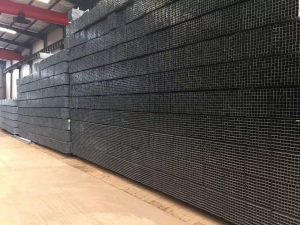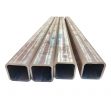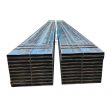Key Considerations in Manufacturing Square and Rectangular Steel Tubes
The production of square hollow section (SHS) and rectangular steel tubes requires strict quality control to ensure structural integrity and durability. As demand grows in construction, automotive, and industrial applications, manufacturers must address several technical and operational challenges to maintain high standards. Below are the critical factors in producing square and rectangular hollow sections, including welded square pipes, efficiently and safely.
1. Material Selection and Quality Control
The first step in manufacturing high-quality square hollow sections and rectangular steel tubes is selecting the right raw materials. Low-carbon steel is commonly used due to its weldability and strength. However, variations in steel composition can lead to inconsistencies in hardness and corrosion resistance. Suppliers must verify material certifications and conduct chemical analysis to ensure compliance with international standards like ASTM, EN, or JIS.
2. Precision in Forming and Welding
For square pipes, the forming process must maintain exact dimensions to prevent structural weaknesses. Uneven edges or improper bending can lead to stress concentrations, reducing load-bearing capacity. Advanced roll-forming machines and laser measurement systems help achieve tight tolerances.
Welding is another critical stage—poor weld seams can cause cracks or leaks. High-frequency induction welding (HFIW) and submerged arc welding (SAW) are preferred for square and rectangular hollow sections to ensure deep penetration and smooth finishes. Regular weld inspections using ultrasonic testing (UT) or X-rays are necessary to detect internal defects.
3. Surface Treatment and Corrosion Protection
Many square hollow sections and rectangular steel tubes require galvanization or powder coating to resist rust. Before coating, surfaces must be thoroughly cleaned to remove mill scale and impurities. Inadequate pretreatment can lead to peeling or uneven coating, compromising longevity. Hot-dip galvanizing is a common method, but manufacturers must control zinc bath temperatures to avoid brittleness.

4. Straightness and Dimensional Accuracy
Post-production distortion is a common issue with welded square pipesdue to residual stresses from welding. Stretch leveling or heat treatment may be applied to correct warping. Strict dimensional checks—including diagonal tolerances and wall thickness—are crucial, especially for construction applications where misaligned sections can cause assembly failures.
5. Compliance with Industry Standards
Different markets impose varying regulations on square and rectangular hollow sections. For instance, construction-grade tubes must meet ASTM A500 standards, while automotive applications may require EN 10219 certification. Manufacturers must stay updated on regional requirements to avoid costly rejections or recalls.
6. Environmental and Safety Practices
The production of square hollow sections generates emissions and waste, prompting stricter environmental regulations. Many factories now use electric arc furnaces (EAFs) with scrap metal recycling to reduce carbon footprints. Worker safety is equally vital, particularly in welding zones where fumes and sparks pose hazards. Proper ventilation and PPE are mandatory.
Future Trends in SHS Manufacturing
Automation and AI-driven quality checks are becoming standard in producing rectangular steel tubes, minimizing human error. Lightweight, high-strength alloys are also gaining traction for specialized applications. As sustainability pressures mount, expect more manufacturers to adopt green steelmaking technologies.
Conclusion
Producing high-quality square hollow sections, rectangular steel tubes, and welded square pipes demands attention to material science, precision engineering, and regulatory compliance. By addressing these challenges, manufacturers can meet global demand while ensuring safety and performance.
Tel: +86 18202256900 Email: steel@tjdpbd.com








